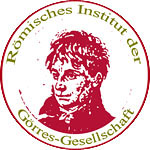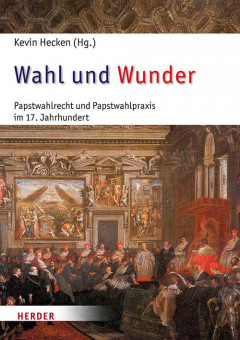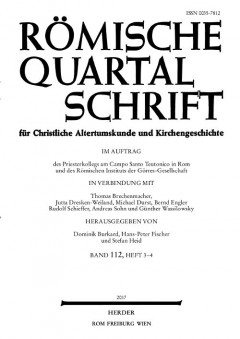This year, after 15 years of research (p. 97), the Munich pastoral theologian Prof. Dr Andreas Wollbold published a truly monumental work on early church celibacy with the Friedrich Pustet publishing house.
- Details
- Written by: Stefan Heid
- Category: Recommended reading
 Römisches Institut der Görres-Gesellschaft
Römisches Institut der Görres-Gesellschaft
















